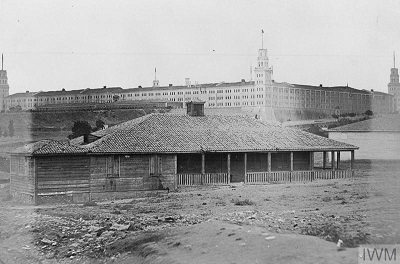

The Crimean War was fought by an alliance of Britain, France, Turkey and Sardinia against Russia on the grounds of the strategic importance of a region and over religious differences. France, Russia and Britain were all competing for influence in the Middle East, particularly with Turkey. Also control of access to religious sites in the Holy Land had been a cause of tension between Catholic France and Orthodox Russia for a number of years. The immediate cause involved the rights of Christian minorities in the Holy Land, which was a part of the Ottoman Empire. The French promoted the rights of Roman Catholics, while Russia promoted those of the Eastern Orthodox Church. While the churches eventually worked out their differences and came to an agreement, Nicholas I of Russia and the French Emperor Napoleon III refused to back down. Tsar Nicholas took the opportunity to mobilise the Russian army against Turkey, which at this point was beginning to lose its grip on its empire. The British and French, for their part, were concerned about Russian expansion in the region and the potential threat to their trade routes.
Source:National Archives
| Allies | Russian empire |
|---|---|
 British Britishstrength - 200,000 KIA - 3000 DOW - 2000 DOD - 17000  Ottoman Empire Ottoman Empirestrength - 300,000 Dead - 150,000  Sardinia Sardiniastrength - 18,000 Dead - 2000  French Frenchstrength - 400,000 KIA - 10,000 DOW - 20,000 DOD - 60,000 |
 Russia Russiastrength - 700,000 Dead - 400,000 KIA - 150,000 DOW - 80,000 |
|
Note KIA - killed in action DOW - died of wounds DOD - died of disease Numbers are Approximate | |
| Boldon Combatants | |||
|---|---|---|---|
| Private | James Edward Quick | A bible/Prayer book was Sold at auction, The book belonged to James Edward Quick Boldon County Durham and was incribed by Florence Nightingale in Scutari Hospital 1855 |
 © IWM (Q 71083) |